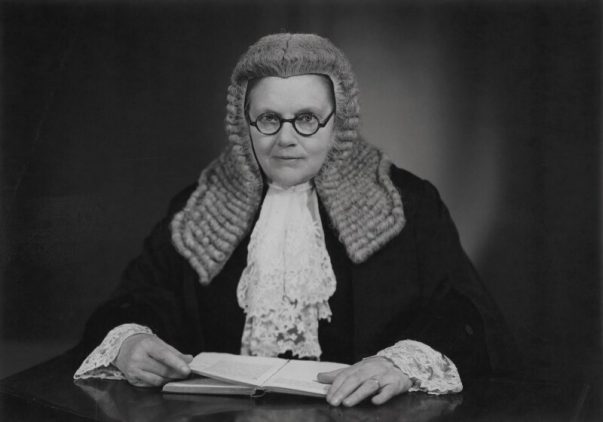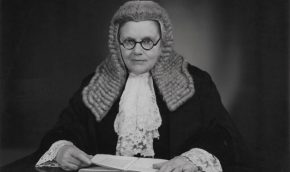First woman to join an Inn, first woman to practice at the Bar, first woman to appear in the High Court, first woman to appear in the Old Bailey and one of the two first women KCs in England and Wales
Women in Law
- Introduction
- Timeline
- Joyce Bamford-Addo
- Marion Billson
- Jill Black
- Elizabeth Butler-Sloss
- Sue Carr
- Eugenia Charles
- Lynda Clark
- Freda Corbet
- Coomee Rustom Dantra
- Leeona Dorrian
- Heather Hallett
- Frene Ginwala
- Rosalyn Higgins
- Daw Phar Hmee
- Lim Beng Hong
- Dorothy Knight Dix
- Sara Lawson
- Elizabeth Lane
- Theodora Llewelyn Davies
- Gladys Ramsarran
- Lucy See
- Evelyn Sharp
- Victoria Sharp
- Ingrid Simler
- Teo Soon Kim
- Ivy Williams
- The Significance of the Sex Disqualification (Removal) Act 1919
- Podcasts
Home › Women in Law › Pioneering Women in Law › Helena Normanton
Helena Normanton KC
Listen to Dr Judith Bourne Talk About Helena Normanton
0:00
-0:00
(1882–1957)
Helena Normanton was born in East London in 1882. Her parents separated when she was four years old and her mother brought up both Helena and her younger daughter, Ethel, alone. Normanton’s mother took on various employment working as a milliner, publican and finally boarding housekeeper. Normanton’s father died in 1886, possibly through suicide. Normanton was educated as a teacher and her sister as a nurse. In 1894 Normanton experienced what she believed to be sex discrimination, when her mother, during a solicitor’s appointment, failed to understand some legal advice proffered. Normanton was asked to explain the advice to her mother, which she did, and the solicitor exclaimed ‘quite the little lawyer’ and so Normanton decided that she would be.
Normanton made legal history, when on 24 December 1919 she joined the Middle Temple, making her the first woman to make use of the Sex Disqualification (Removal) Act 1919 passed the previous day. She was the first woman to join an institution of the legal profession. Normanton had campaigned fiercely for this legislation. In February 1918 she had applied to join the Middle Temple and was refused. With the help of Claud Schuster, Permanent Secretary to the Lord Chancellor, she appealed this decision, but this was further refused in January 1919. She continued to fight for an end to the male exclusivity of the legal profession by participating in public debates and through writing. When it became clear that the Sex Disqualification (Removal) Bill would receive the Royal Assent, the Middle Temple contacted Normanton, inviting her to join them without delay. Normanton joined on Christmas Eve 1919, the day after the Act became law.
Normanton remained in practice until she retired in 1951, but she had to work hard to do so, for example by writing true crime books or magazine articles to supplement her income. She also worked hard to help many people, including people she had defended who ended up in prison or other women trying to enter the Bar, although she warned them of how difficult a profession it could be. She worked tirelessly to improve divorce law, making it more equal for all. Although she never became a judge, something she desperately wanted to be, she did manage to become a King’s Counsel – one of the two first women KCs in England and Wales in 1949. She had many other firsts, first woman to appear in the High Court, first woman to appear in the Old Bailey but we should remember her as an incredibly resilient woman who pushed for change and equality.
Normanton died in 1957 and her ashes were placed with her husband in Ovingdean churchyard, Sussex.


Helena Florence Normanton by Elliott & Fry. Source: https://www.npg.org.uk/collections/search/portrait/mw102407/